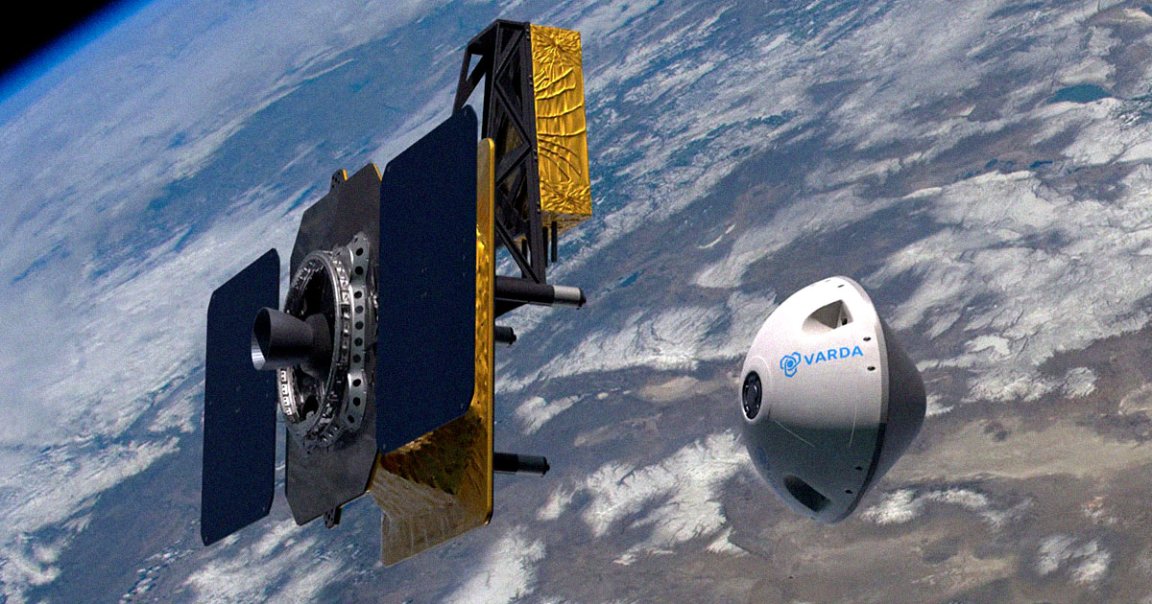
Last month, the US Air Force denied a request from a space drugs manufacturing startup to have its precious cargo, a spacecraft that has been growing crystals of an HIV drug in orbit since June, to land at a Utah training facility.
Varda Space Industries’ application for a commercial space license was also denied by the Federal Aviation Administration, leaving the company in a unique — and incredibly awkward — position.
And as of right now, the spacecraft is still stuck, orbiting the planet as Varda tries to figure out how to get it back Earthside.
“As an update, our spacecraft is still healthy across all systems,” the company announced last week. “We continue to work with [Utah Test and Training Range] as a possible landing site for Mission 1 and are thankful for the engagement between our teams.”
The company has been developing a novel way to use the microgravity of space to produce crystals of the HIV drug ritonavir. According to NASA, this kind of approach can result in larger and more uniform crystals compared to Earthly manufacturing processes.
But getting these crystals back to the ground is proving more difficult than expected. Fortunately, Varda’s capsule is designed to survive in orbit for an entire year, technically giving the company until next June to recover its stranded loot.
While it may sound like producing drug crystals in space could’ve raised eyebrows among regulators, the reason for the US government’s rejection of having Varda’s capsule reenter the atmosphere appears to be far more mundane: missed deadlines, complex regulatory approval processes, and a huge pile of red tape.
In a statement to TechCrunch last month, the Air Force cited concerns over “overall safety, risk and impact analysis” as its reason to deny the company’s request to use the Utah range.
“All organizations continue working to explore recovery options,” the Air Force added in its statement.
The company also failed to “demonstrate compliance with the regulatory requirements,” according to the FAA, leading to the regulator rejecting Varda’s application in early September.
While the current capsule is still technically stranded in outer space, the company may have found a possible solution for its future missions: it’s signed an agreement with an Australia-based end-to-end launch service provider called Southern Launch to have future missions land at the company’s Kooniba Test Range in South Australia.
More on Varda: US Government Won’t Let Space Drugs Factory Come Back to Earth